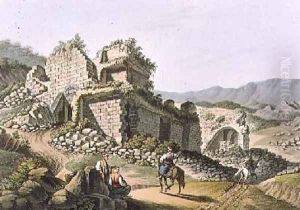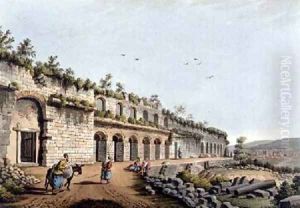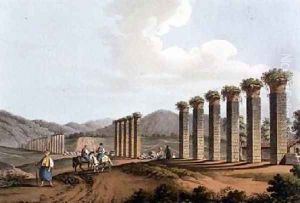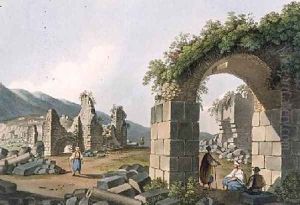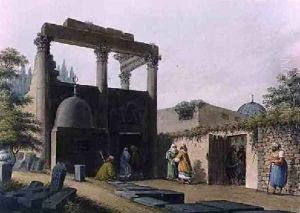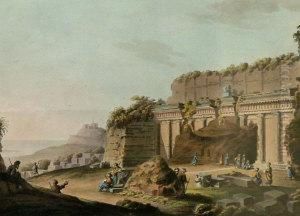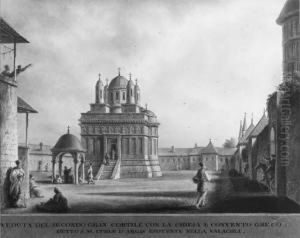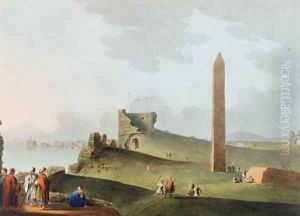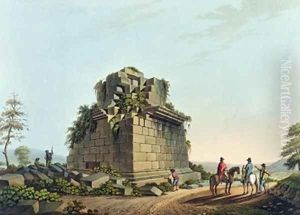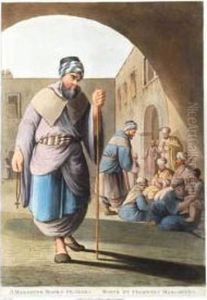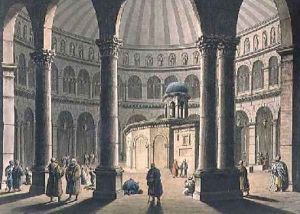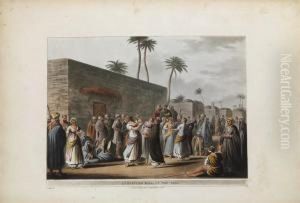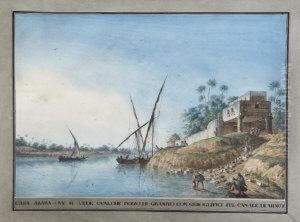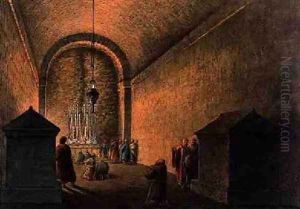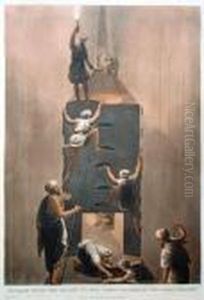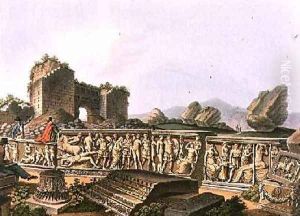





Fragments at Ephesus 1810
-
About Reproduction
Discover the allure of art with our faithful reproduction of "Fragments at Ephesus 1810", originally brought to life by the talented Luigi Mayer. Unlike posters or prints, our hand-painted oil painting breathes an unique sense of depth and texture into your space. Every detail, every stroke, and every texture is meticulously recreated, paying the perfect homage to Luigi Mayer and his artistic vision.
Owning this piece is more than just decoration - it's a statement of your refined taste in art. Let the vibrant colors and intricate details of this replica serve as a daily reminder of the beauty in our world. Elevate your decor and appreciate the richness of art with our replica of this masterpiece.
-
Painting Description
"Fragments at Ephesus 1810" is a notable watercolor painting by Luigi Mayer, an Italian-German artist renowned for his detailed and evocative depictions of the landscapes and ruins of the Ottoman Empire. Created in the early 19th century, this work is part of Mayer's extensive collection of paintings that document his travels through the Eastern Mediterranean, particularly in regions that were part of the ancient world.
Luigi Mayer was born in Germany around 1755 and later moved to Italy, where he developed his artistic skills. He became a prominent figure in the Orientalist movement, which sought to capture the allure and mystique of the East. Mayer's works are characterized by their meticulous attention to detail, vibrant use of color, and a romanticized portrayal of ancient ruins and exotic locales.
"Fragments at Ephesus 1810" specifically captures the remnants of the ancient city of Ephesus, located in present-day Turkey. Ephesus was one of the most important cities of the ancient Greek and Roman worlds, known for its grand architecture, including the Temple of Artemis, one of the Seven Wonders of the Ancient World. Mayer's painting offers a glimpse into the state of these ruins as they appeared in the early 19th century, providing valuable historical insight into the site's condition before modern archaeological excavations and restorations.
The composition of "Fragments at Ephesus 1810" reflects Mayer's skill in balancing historical accuracy with artistic expression. The painting likely features a combination of architectural fragments, overgrown vegetation, and possibly figures that add a sense of scale and human presence. Mayer's work not only serves as an artistic achievement but also as an important historical document, preserving the visual memory of Ephesus during a period when it was largely neglected and in ruins.
Mayer's contributions to the documentation of ancient sites have been highly regarded by historians and art enthusiasts alike. His paintings, including "Fragments at Ephesus 1810," continue to be studied for their artistic merit and their role in the broader context of 19th-century Orientalism and the European fascination with the ancient world.
-
Lead Time & Shipping
When you order this oil painting replica, it typically takes 2-3 weeks to paint. If the artwork is more complex, it might need a little more time to ensure the best quality. Once it's ready, we'll send you a photo for your approval. After you give the green light, we'll ship it to you for free.
-
Return & Refund
We believe in the quality of our hand-painted oil painting reproductions, and your satisfaction is our priority. If for any reason, you are not completely satisfied with your purchase, we offer a 45-day return policy. You can return your artwork within 45 days of receipt and receive a full refund. Please note that the artwork must be returned in the original packaging and in the same condition as it was received.





